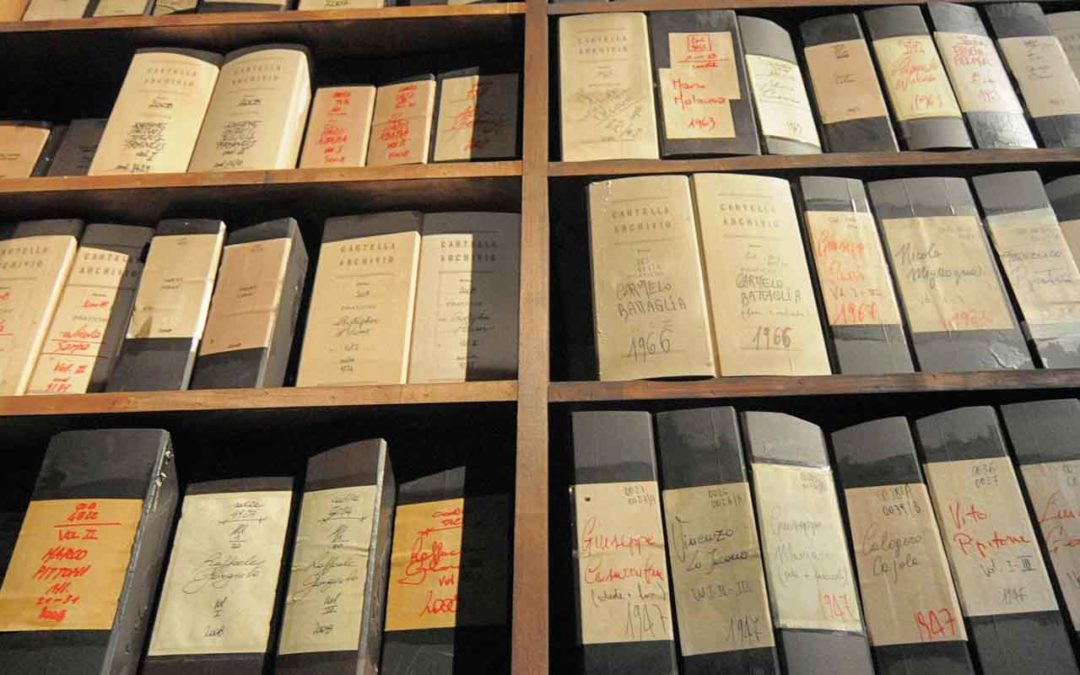By Adam Chapman of the Victoria County History.
Who would be an archivist, especially one working in a county record office? Always a profession under stress, often in inadequate buildings and seen as an easy thing to cut, trim or salami slice, running an archive under the aegis of county hall is hard graft for poor financial reward.
Archival research is the backbone of the historical discipline and a key component in the work of archaeologists, historic buildings and landscape consultants, planners and developers as well as countless others pursuing research into their families, communities the close and far, far distant past. Authors and editors for the Victoria County History are among their number and would not have achieved what they have – the histories of nearly 7,000 communities – over the last century or so without the resources these archives contain.
In fact, the Victoria County History has been an integral part of the development of England’s network of local archives. Many of the early contributors to the VCH edited and catalogued the records they worked on. One such was the suffragist Mary Bateson (1865–1906) who researched and wrote the account of the borough of Peterborough in volume II of the Northamptonshire series published in 1906 and earlier edited the medieval records of the borough of Leicester among a rich and a varied career.
I mention Bateson’s contribution to the VCH History of Northamptonshire because, on 24 July, Northamptonshire Archives and Heritage Service announced – via Facebook, but also on their website:

There are numerous issues here: does this actually constitute public access? This is something enshrined in law and many depositors of material to archives did so on that condition. Have they or their estates been consulted?
How straightforward is it to do archival work in half days? If you live any distance from Northampton, getting there for 9 am is likely to require a fairly early start, be stressful (archives are seldom well sign-posted from the town centre, never mind the nearest bypass) or expensive. An overnight stay or a peak hour train fare doesn’t come cheap, particularly for multiple trips. Professional historians talk of a ‘day at the archives’: reckoned as the amount of time it takes to actually get anything meaningful done in terms of research even now in the days of cheap digital cameras and advanced ordering of documents. No matter how well you know your sources or how good the catalogue you will inevitably order up a likely-looking source that is not what you thought it was. The archivist may suggest that what you actually want is something you hadn’t thought of. There is no substitute for actually visiting the archive.
Of course you can offset these problems with money. Ok, but to get that extra half day (4 hours) will cost you £126 – in advance – so a couple of weeks archival work will end up costing around £1,000, not including accommodation and travel. No student, BA, MA/MRes or PhD could afford such sums, early career researchers scratching an existence from hourly paid teaching would probably choose to work elsewhere and those lucky enough to have salaried jobs would think twice. The Victoria County History project in Northamptonshire which needs extensive access over a prolonged period with limited resources could not function. If in receipt of public funding, with the incumbent Open Access expectation, the irony is that the documents such research is based on were themselves all but inaccessible.
Now it’s probably unfair to single out Northamptonshire. Local government has borne the brunt of cuts to public services since 2010 while taking on more and more burdens along the way. Plenty of archives are open only for three days a week – Shropshire, for example (Weds–Fri, 9–4) – and many have reduced their hours or, like those in Somerset and Devon, been transferred to quasi-independent trusts. In an extreme example, Carmarthenshire Archives were summarily closed and their contents dispersed owing to a serious outbreak of mould such were the appalling conditions of the building. A replacement is planned but how soon will it be ready?
None of this is really the point. By reducing the hours to this level, serious research into the history of Northamptonshire is impossible. ‘Popping in’ will be limited to school groups or the retired and a public archive mandated by law and protected by it is effectively made into a private one.
Archives are important.
Adam Chapman is Lecturer in Medieval History at the IHR and Editor of the Victoria County History. Follow him on Twitter.


Readers might like to sign the petition against Northamptonshire County Council’s planned charges, here: https://www.change.org/p/northamptonshire-county-council-northamptonshire-county-council-don-t-charge-for-visiting-archives?recruiter=46843715&utm_source=share_petition&utm_medium=copylink&utm_campaign=share_petition&utm_term=share_petition
After a large protest, I understand that Northants County Council have had second thoughts and removed these proposals.